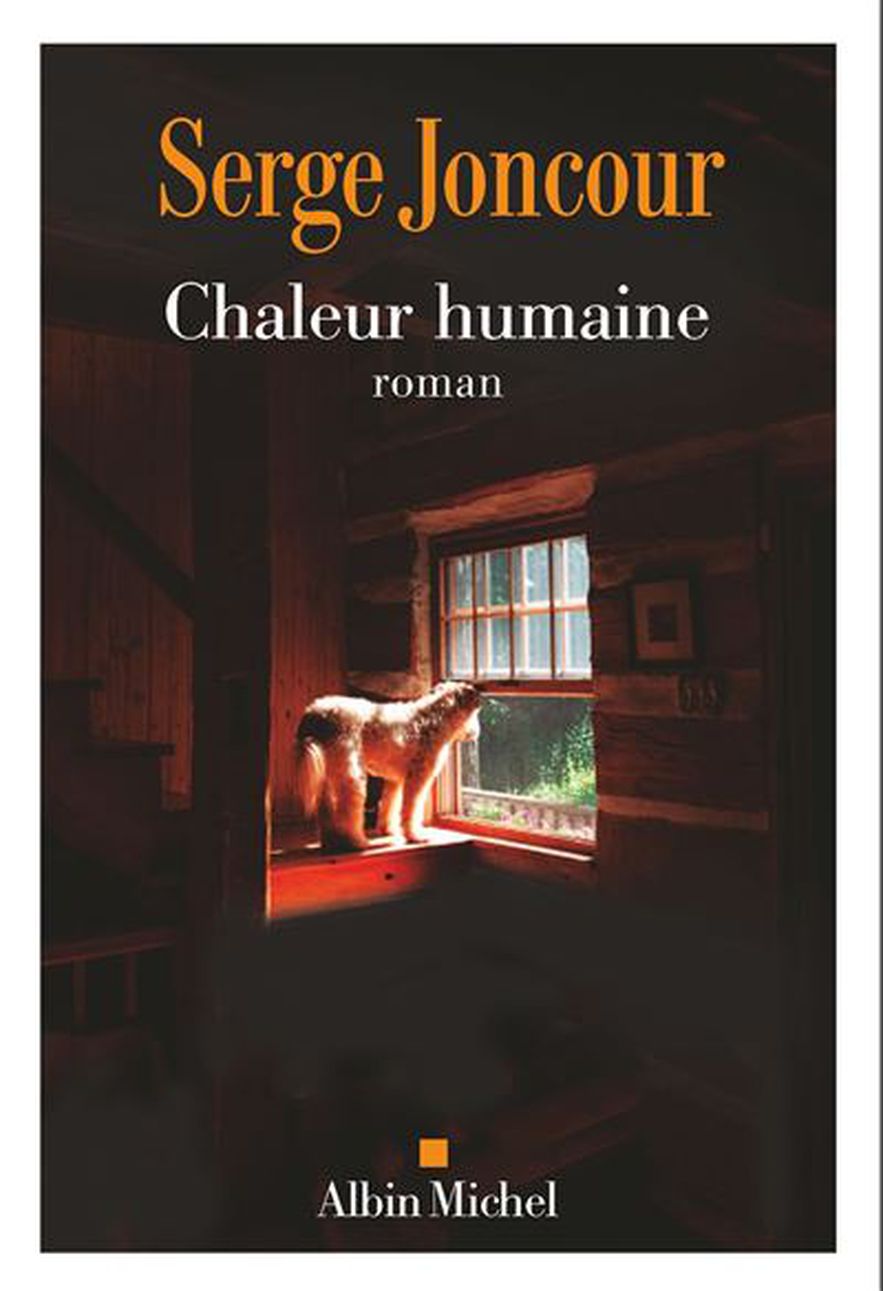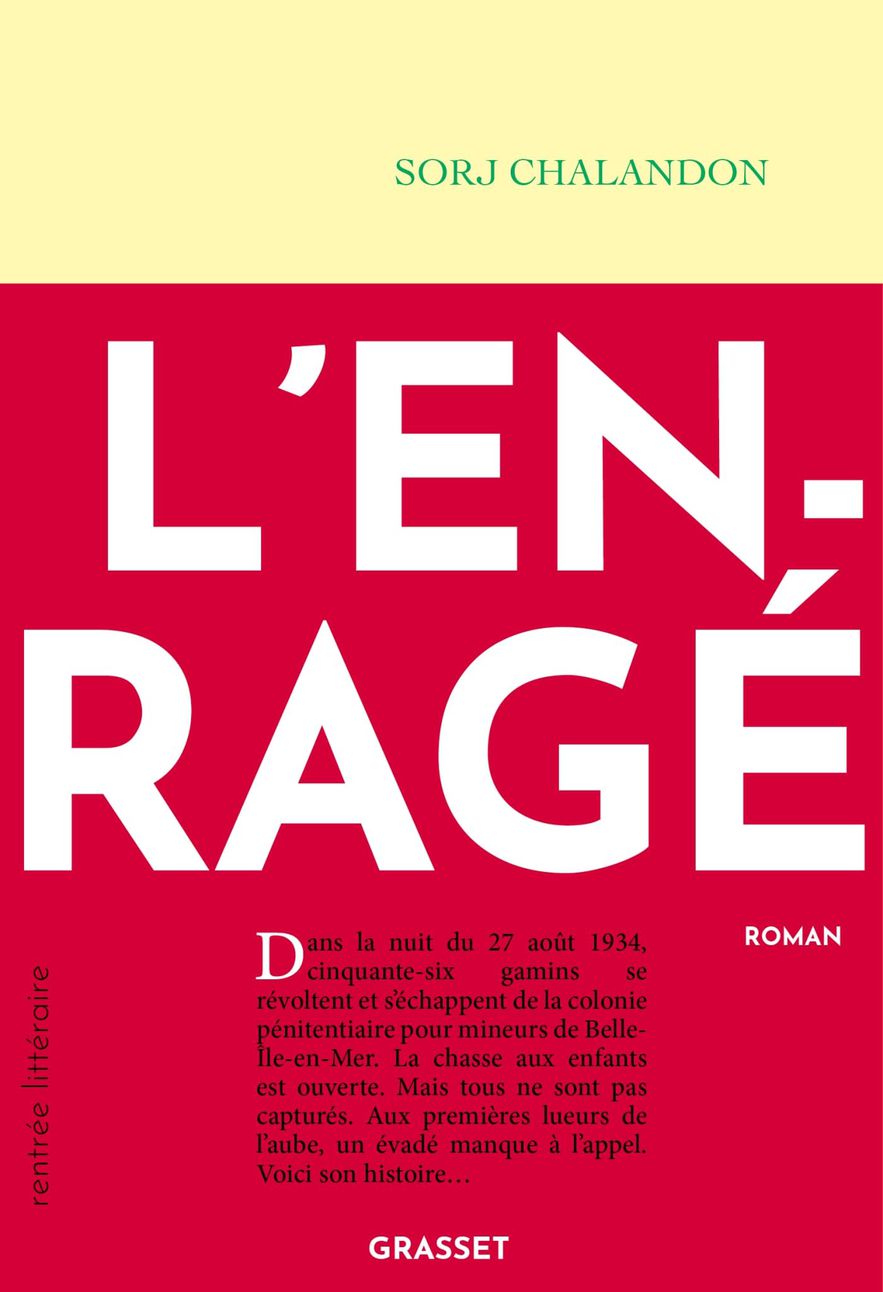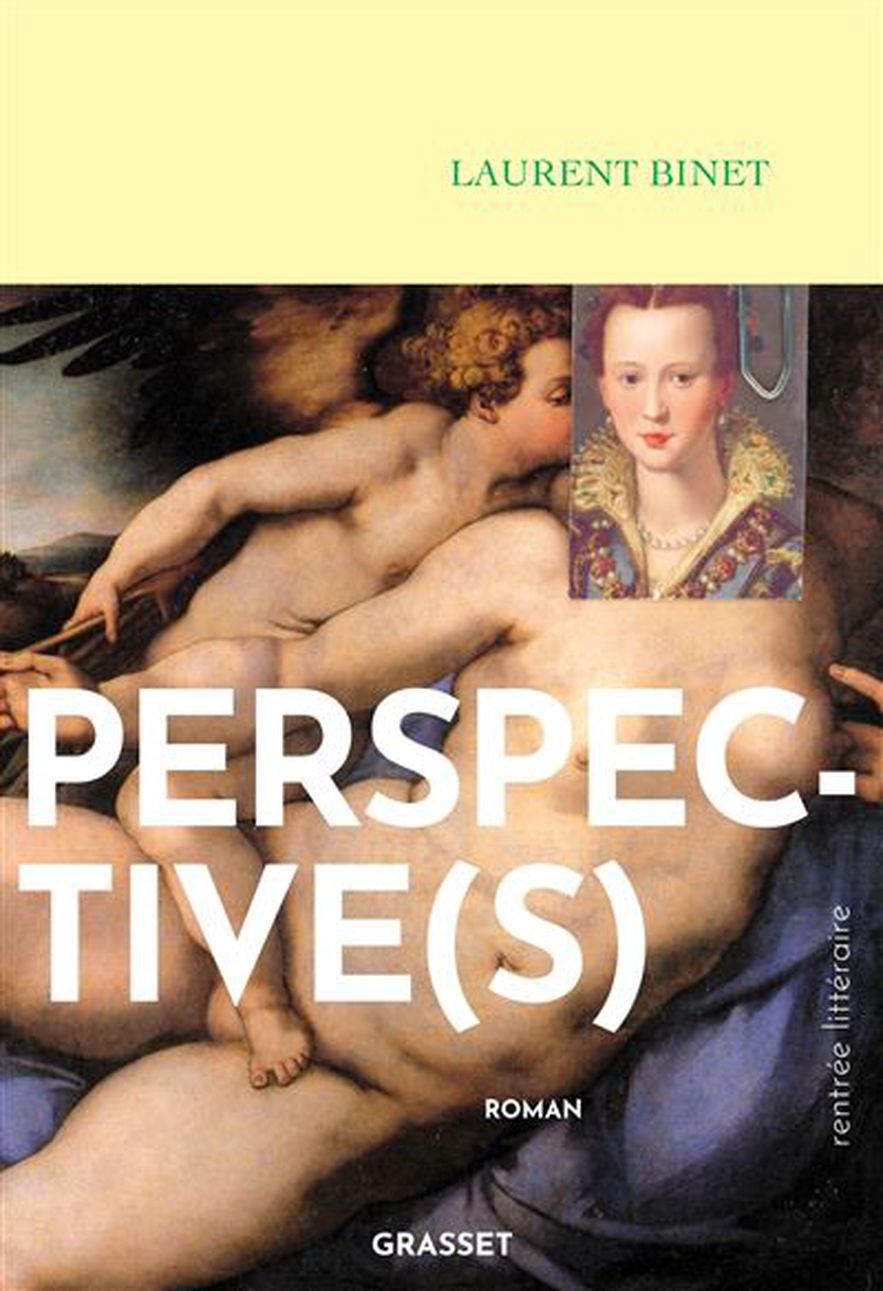Maria Pourchet, Serge Joncour, Sorj Chalandon and Laurent Binet sign 4 of the 321 French novels published at the start of the school year. Big names eagerly awaited by readers and by… their publishers, who are betting big on their foals, according to the prints made, between 40 and 60,000 copies.
PART 1. The essential novels of the new school year: Gaspard Koenig, Amélie Nothomb, Eric Reinhardt, Thomas B. Reverdy
Western, by Maria Pourchet: a fable of modern times
Western by Maria Pourchet.
© / Stock
By closing Western by Maria Pourchet, at the beginning of July, I noted to myself that I found a quote from Milan Kundera which I had the spirit in mind, but no longer the accuracy of the words. Kundera has since died, and the quote came back to me: “People’s stupidity consists in having an answer to everything. The wisdom of a novel consists in having a question to everything.” So here it is: Western is the wisdom of the novel applied to #MeToo.
Either Aurore, tenacious and exhausted Parisian, executive at La Défense and “solo mom”, as they say in women’s magazines (and as Maria Pourchet does not write). One day, she “collapses on the floor of her kitchen”. Tired. Depression, maybe. And goes to try to get up in the Lotoise house of his mother, who has just died. Or Alexis, an admired national actor, who plants his role of Dom Juan in the middle of a dress rehearsal. Without saying anything, he disappears: he flees the storm which announces his disgrace #MeToo. The rocky causse of the Lot is their “red circle” – this circle drawn in chalk “where the destinies which must intersect meet”, as the Buddha quoted by Melville said. The story, therefore, has all the fables of modern times, with #BalanceTonPorc in the background. One would search in vain for a thesis, however. Because Maria Pourchet is not in the demonstration. But in the novel. This place where everyone has their reasons.
It is always difficult to recommend a book. Some will be confused by Western’s construction. Others will applaud the dazzling and accurate writing. Personally, I found something essential there. Something we’re afraid to see die with the Roths and Kundera. Which I cherish all the more when I see it elsewhere: the ambiguity of literature. Western is one of the most anticipated novels of the season. Well Named. Anne Rosencher
Stock, 304 p., €20.90 (in bookstores August 23).
Human warmth, by Serge Joncour: confinement in the Lot

Human Warmth By Serge Joncour.
© / Albin Michael
It was yesterday and yet it feels like it happened a century ago. The containment! France and the world arrested, paralyzed. From fiction to essays, many authors have already mentioned the Covid epidemic. Serge Joncour gets into it in turn. And, surprise, far from boring us, these reminiscences enchant us. Is this due to the sauce, bucolic and deeply humanist of the Femina 2020 prize? To the satisfaction of seeing this era of restrictions of all kinds over? A reunion with the Lot, the writer’s favorite land? Still, we walk with pleasure, for three months – from January 25 to March 29, 2020 –, in the company of Alexandre, the hero of Human Nature, and his disunited family reunited thanks (or rather because) of the pandemic. An electric camera…
Staying on the Bertranges farm, where he raises (organic) cows, Alexandre saw his three sisters go to town and sell their land to let huge wind turbines be installed there. The eldest, a teacher in Toulouse separated from her husband, Agathe, married to a restaurateur-bistro from Rodez as big-mouthed as he is unbearable (and pro-chloroquine), Vanessa the Parisian photographer… All three have long since denied their peasant roots, however, all three will come to take refuge on the farm as the bad news breaks. They find their parents there, three bichon puppies also taken in and Alexandre, still placid. It’s because he belongs to the very rare race of people who are more satisfied than encumbered by cries for help. Which will multiply at leisure. Until a “bonfire” appeases all this little world and concludes this novel with universal scope. Marianne Payot
Albin Michel, 352 p., €21.90 (in bookstores August 23).
The Enraged, by Sorj Chalandon: the young convicts of Belle-Ile

The Enraged by Sorj Chalandon.
© / Grasset
He writes to share the wounds. Mining Disaster (The day before, 2017), cancer (fierce joy2019), father’s nauseating past (bastard’s child, 2021)… as much to say that this story of the young convicts of the colony of Belle-Ile-en-Mer is a golden subject for Sorj Chalandon. Abused childhoods, family and societal scandals, state hypocrisy, the “houses of supervised education” created at the end of the 19th century are none other than prisons for minors who, for the most part, have committed as only crime to have been abandoned by their family. On August 27, 1934, the colonists of Belle-Ile revolted after one of them was savagely beaten by the guards for having eaten the cheese before the soup; 56 pupils escape, 55 will be caught up, hunted down by all the brave people of the island (20 francs for it) during a “child hunt”, put into verse by Jacques Prévert. A news item widely relayed by the press of the time and which Sorj Chalandon seizes today in his tenth novel by imagining the life of the 56th escapee, a certain Jules Bonneau, nicknamed La Teigne after having subdued the bosses of the camp.
Mother’s “orphan”, left with an accordionist, mistreated by his grandparents, the young Jules, originally from Mayenne, was imprisoned in May 1927 in the penal colony. Like his co-religionists with shaved heads, he works like a convict and suffers bullying and abuse. On the day of the riot, he is out in the open, surrounded by the seas. By a miracle, he falls on a fisherman, socialist boss with a strong character, who passes him off as his nephew and enlists him as a ship’s boy. The novel, which hitherto played (a little) too much on the sensitive chord, then gains momentum. Chalandon is never as good as when he dissects intergenerational ties and examines men with big hearts. Marianne Payot
Grasset, 416 p., €22 (in bookstores August 16).
Prospect(s), by Laurent Binet: art and mannerism

Perspective(s) by Laurent Binet
© / Grasset
His political positions, on the market economy, Emmanuel Macron or his friend Jean-Luc Mélenchon, are as agreed as his novels turn out to be surprising. revealed with HHhH, crowned by the French Academy for its uchronia Civilizations, Laurent Binet likes to play with History, by varying the forms. An epistolary thriller set in late Renaissance Florence, Perspective(s) is placed under the high patronage of Umberto Eco, Agatha Christie and Choderlos de Laclos. Taking advantage of the vagueness surrounding the death of the Mannerist painter Pontormo, like the erasing of his large fresco for the Basilica of San Lorenzo, the novelist imagines an artistic murder.
The protagonists ? The fine artistic flower of the time (Vasari, the Bronzino, Cellini…) and the political elite (Catherine de Medici, Cosimo I, Piero Strozzi…). As with Agatha Christie, everyone is suspect, even old Michelangelo. If these exchanges of letters between many personalities can initially disconcert the reader (who is this Sandro Allori again?) and that the murder of Pontormo is far from being as Machiavellian as that of Roger Ackroyd, Binet succeeds in making their pulpit – and their humor – to these Tuscan legends. An art lesson almost as entertaining as the brilliant semiotics lesson in The Seventh Theory of Language. Thomas Mahler
Grasset, 303 p., €21.50 (in bookstores August 16).
